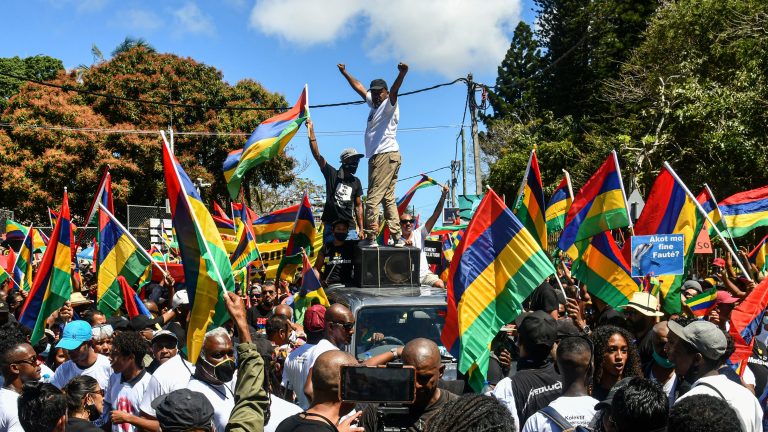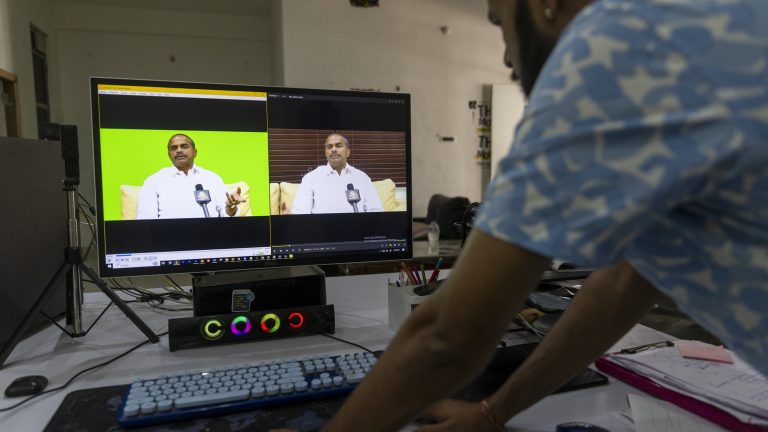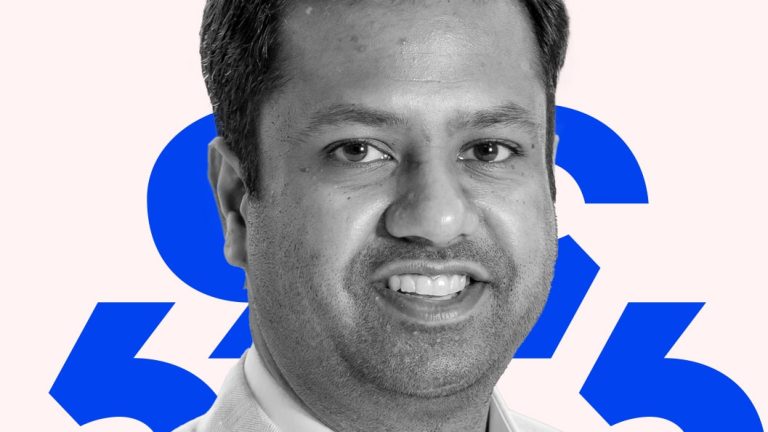Authoritarianism doesn’t always arrive in grand, sweeping, military-style gestures. In Mauritius, an island of nearly 1.3 million people off the coast of East Africa, it has taken the form of an alarming proposal from the Information and Communication Technologies Authority (ICTA), a government agency. Written in clouded, clunky language, the proposal is, in effect, announcing the implementation of a digital surveillance system. The public has until May 20 to respond, which they can do by sending an email to the ICTA.
The proposal, published on April 14, aims to curtail the “abuse and misuse of social media” in response to 2,051 reported incidents of hacking, online harassment, offensive comments, online scams, and sextortion in Mauritius in 2020. Because social media companies, including Facebook and Twitter, aren’t able to moderate content published in Mauritian Creole, our primary national language, the ICTA document suggests that the government should take monitoring into its own hands.
“Unregulated social and digital media can pose a threat to social harmony and national security,” the report concludes.
A Facebook Live video that went viral in April is often used to showcase why the ICTA’s proposal is necessary. In a 44-minute video, an outspoken Mauritian citizen alleged racism she faced from the Franco-Mauritian business élite. Arnaud Lagesse, the Franco-Mauritian head of the biggest Mauritian conglomerate, IBL Group Limited, filed a complaint against the woman to the ICTA. The woman was imprisoned and the video was removed from her Facebook and Instagram pages. She has since been released on parole and ordered to stay away from social media.
In the following days, the conversation locally revolved around limiting freedom of speech to preserve national unity. Less than 1% of Mauritius’ population is white. Few people thought this was an opportune moment to kickstart an urgent national conversation on racism, even though 10 white families manage and own 90% of the country’s land, according to Jean-Claude de L’Estrac’s 2020 book Terres: Possession et Dépossession.
The ICTA proposal is written in English, which is used in parliament and officially in schools, but is seldom spoken at home. Mauritian Creole, our national language, is understood by almost everyone. There are great swathes of the population who won’t understand the proposal or its implications.
Some sections of the proposal are hilarious, replete with bombastic, inane phrases. “With the advent of the internet and more specifically of online social media,” the document states, “the number of abusive online content and online fake news cases has also skyrocketed.”
Great, illogical leaps are made between clauses. The proposal starts by listing several terrible social media-related events around the world (false child kidnapping rumors over Whatsapp that spawned murders, hate speech exacerbating violence against the Rohingya people), then lists instances of countries taking action against social media companies.
These instances are “prevailing international trends,” and because of them, “sitting on the fence is not an appropriate option for Mauritius, albeit a universal silver bullet solution does not exist” — whatever that sentence is supposed to mean.
If passed, the law would mandate the set-up of a proxy server that would impersonate social media networks. The server would fool devices and web browsers into sending secure information to the server instead of directly to social media networks, effectively creating an archive of the social media information of all users in Mauritius before resending it to the social media networks’ servers.
The ICTA would be able to decrypt, re-encrypt, and archive all social media traffic in Mauritius. An ICTA official would have access to my credit card number if I use it to pay for services and ads on Facebook, for instance. The ICTA would be able to read all my DMs on Twitter, and gawk at photos on my private Instagram.
If I criticized the government in any way, the official could report it as an instance of “abuse and misuse.” This would be taken to the newly-instated National Digital Ethics Committee, consisting of independent people “of high caliber and good repute.” It is worth noting that the ICTA’s board of directors is largely made up of political nominees.
Should the proposal be amended into law, government officials would be able to block accounts, track down users via their IP address, and possibly send them to jail.
The amendments make no mention of how long information will be archived, or how the government will protect this data. The proposal doesn’t consider that social media companies may push back against these measures, nor does it take into account that it may come into conflict with the Council of Europe’s Convention 108, which Mauritius signed in 2016 and ratified last year. If the amendments go ahead, Western social media companies might leave the island, which would create space for a state-monitored system like China’s WeChat.
The ICTA, as it already stands, is an absurdly frightening tool. Anyone in Mauritius who sends a message via the internet that causes or could cause an “annoyance” could end up being sentenced to up to ten years in prison. Anyone can file a complaint and seek damages for a post, share, or even a like that “is likely to cause or causes annoyance, humiliation, inconvenience, distress, or anxiety.”
In the last two years, over 10 people have been arrested for breaching ICTA, and two Mauritians have been arrested and jailed for sharing memes about the prime minister. One was the secretary of a former president. The other was a former ambassador of Mauritius to Madagascar: The 74-year-old man was so ill in jail that he had to be transferred to a clinic.
Digital freedoms on the island are already eroding. In 2017, the administration of Prime Minister Pravind Jugnauth installed 4,000 Huawei-made Safe City cameras around the island, which track citizens’ faces and monitor our movements. In response to queries from journalists and the opposition party, government officials have been deliberately vague about the number of cameras that are actually in use, though they state that the cameras’ facial recognition abilities haven’t been activated yet.
The ICTA proposal also comes at a time of great government unpopularity. In the last year, Mauritians have witnessed a series of corruption scandals, the MV Wakashio oil disaster, the suspicious suicides of government employees and a government agent (the latter of which directly incriminated a former member of parliament), the death of a Creole man at the hands of prison officials, a wave of police brutality and torture, and the mishandling of the second wave of the Covid-19 crisis.
Mauritians have responded to these events with protests in Port Louis and the southeastern town of Mahébourg. The government’s response has been to arrest protesters and block their Facebook accounts. A study by the V-Dem Institute at the University of Gothenburg suggests that we’re quickly shedding our democratic status in favor of autocracy.
Only five men have been prime minister in Mauritius since our country gained independence in 1968: Seewoosagur Ramgoolam, his son Navin Ramgoolam, Anerood Jugnauth, his son Pravind Jugnauth, and Paul Bérenger. Under their rule, independent media groups and journalists have been attacked and arrested, and the groundwork has been laid for an authoritarian surveillance state.
In recent years, the government has overseen the dramatic expansion of the police force, demurred from reforming colonial-era media laws, and has consistently impeded setting up independent television broadcasters and drafting our Freedom of Information Act, which would provide access to information held by public authorities.
The ICTA proposal is the next step in this progression. The bill will be presented to parliament as early as June, where it is likely to pass with great speed, since Jugnauth’s party, the Militant Socialist Movement, has a majority.
On April 18, I created a petition calling on Mauritians to reject the ICTA proposal. I thought this would be a good, transparent gauge of public opinion.
Ten thousand Mauritians signed my petition within a day. The following day, the ICTA issued an aggressive statement, saying that “as opposed to the rampant fake news propagated by ill-intentioned persons on the web, online messaging applications are not concerned” by their proposal. I wondered if, by “ill-intentioned persons,” the ICTA means me. It certainly feels like it.
On May 3, ICTA chairman Dick Ng Sui Wa gave an explosive interview to a local paper, saying that the ICTA wouldn’t concern itself with reactions on social media and in the press, and that all dissenting views had to be directly communicated to the Authority by May 20.
Wa also said that the same restrictions on freedom of expression that are imposed on journalists in Mauritius should also be imposed on internet users. I could be charged with sedition or libel here under current laws, even if what I report is true and the subject of my reporting is dead. I could be imprisoned if someone in power takes offense at a reported fact, saying that it harms their honor or that I am “exciting contempt” against the government.
We’re quickly shedding our democratic status in favor of autocracy.
Given that people have been arrested for making memes, it’s no surprise to learn that many Mauritians have told me that they won’t sign the petition because they’re scared of publicly going on the record. The private sector has been largely silent on the proposal and its ramifications, too; during the pandemic, many businesses have been buoyed by state aid.
Others simply think the petition is a waste of time. The Wakashio oil spill was the greatest environmental disaster in our history: Protests were held, some gathering 100,000 people, and there were calls both local and international for a government overhaul.
No one resigned in the aftermath. Facebook groups, accounts and pages of protesters were reportedly hacked. Some protesters said they were being harassed online with threats of sedition. In a press conference, the Prime Minister had the temerity to ask: “Ou kapav dir mwa kot monn fote?” or “Can you tell me what I did wrong?”
And then, in early May, internet users discovered that ICTA are already using Netsweeper, a web filtering service, to reroute web requests to a proxy server based in the Netherlands. Netsweeper is used by authoritarian regimes around the world to block content, such as non-pornographic LGBTQ content, including civil rights and advocacy organisations.
The ICTA is ready. The proposal seems to be a mere formality. There isn’t much hope in getting the proposal rejected unless the world takes notice. Access Now and a coalition of international organizations are calling on authorities in Mauritius to avoid administrative censorship at all costs. We must hold our government accountable.



